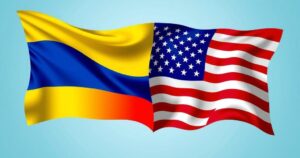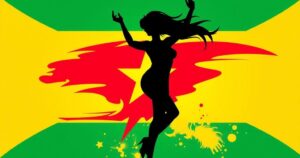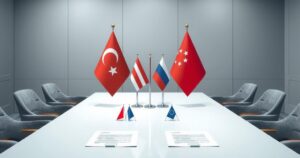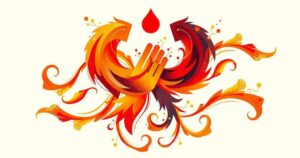Venezuela’s Power Struggle: Maduro vs. González Ahead of Inauguration
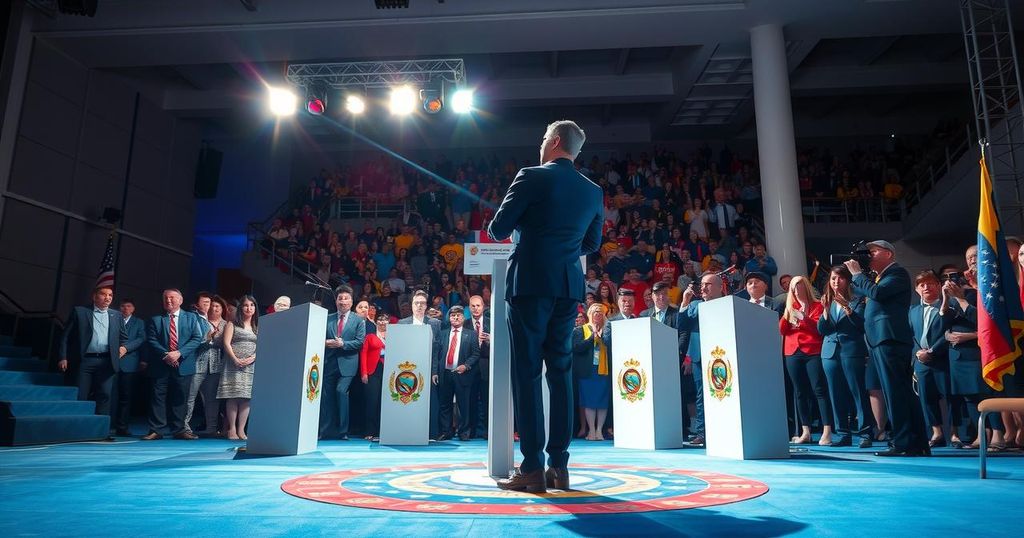
Venezuela’s inauguration of a new president is marred by controversy, with Nicolás Maduro claiming victory despite opposition claims that Edmundo González won the election. As González seeks to return from exile amid threats of arrest, tensions surrounding the inauguration highlight the deep political divide and potential repercussions for regional stability and international relations.
Venezuela is poised for a presidential inauguration on January 10, amidst an intense power struggle between incumbent President Nicolás Maduro and challenger Edmundo González Urrutia. Despite significant international disputes regarding the legitimacy of Maduro’s July election victory, he is preparing for the ceremony, claiming a successful re-election. Meanwhile, González, who has been in exile, is determined to return to Caracas and assume the presidency, even as he faces threats of arrest.
The roots of this conflict date back to the contested July 28 election, where the National Electoral Council, heavily influenced by Maduro’s allies, declared him the victor without releasing detailed voting statistics. In stark contrast, opposition sources argued that González had won decisively, causing widespread protests demanding electoral transparency. The government responded to mounting dissent with severe repression, arresting thousands, including minors, and issuing a warrant for González, which forced him to flee.
As the inauguration approaches, González is contemplating a return to Venezuela, potentially alongside former Latin American leaders, which could lead to confrontations with Maduro’s government. Maduro has already outlined his plans for a secure swearing-in ceremony, emphasizing stability and unity amidst the political turmoil. The government took precautionary measures by detaining over 125 individuals in the days leading up to the inauguration, accusing them of involvement in destabilizing activities. Furthermore, troops have been deployed nationwide to prevent unrest.
The implications of this political event extend beyond Venezuela, potentially deteriorating diplomatic relations with neighboring countries that have opposed Maduro’s presidency. The situation has implications for migration patterns, as venezuelan citizens continue to flee the country due to economic hardships exacerbated by Maduro’s leadership. Consequently, the outcome of the inauguration may have lasting effects on both domestic and international fronts, influencing Venezuela’s political future and its relations across the Americas.
Venezuela has been embroiled in political turmoil following the controversial presidential election held on July 28, where Nicolás Maduro was declared the winner by a pro-government electoral council amid widespread allegations of fraud. His challenger, Edmundo González, has gained support from international observers and many civilians who contest the results. The aftermath of the election saw a significant crackdown on dissent, leading to heightened tensions within the country, characterized by arrests and protests against Maduro’s regime.
As Venezuela prepares for a contentious inauguration ceremony, the outcomes of this power struggle will not only determine the future of the country’s governance but also affect international relations and regional stability. The tensions and circumstances surrounding this event highlight the deeply entrenched divisions within Venezuelan society and the continuing challenge to democracy in the face of authoritarianism. The reactions from various actors, both domestically and internationally, will be critical in shaping the path forward for Venezuela.
Original Source: www.cnn.com


